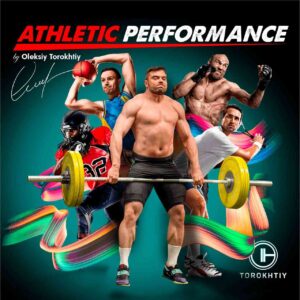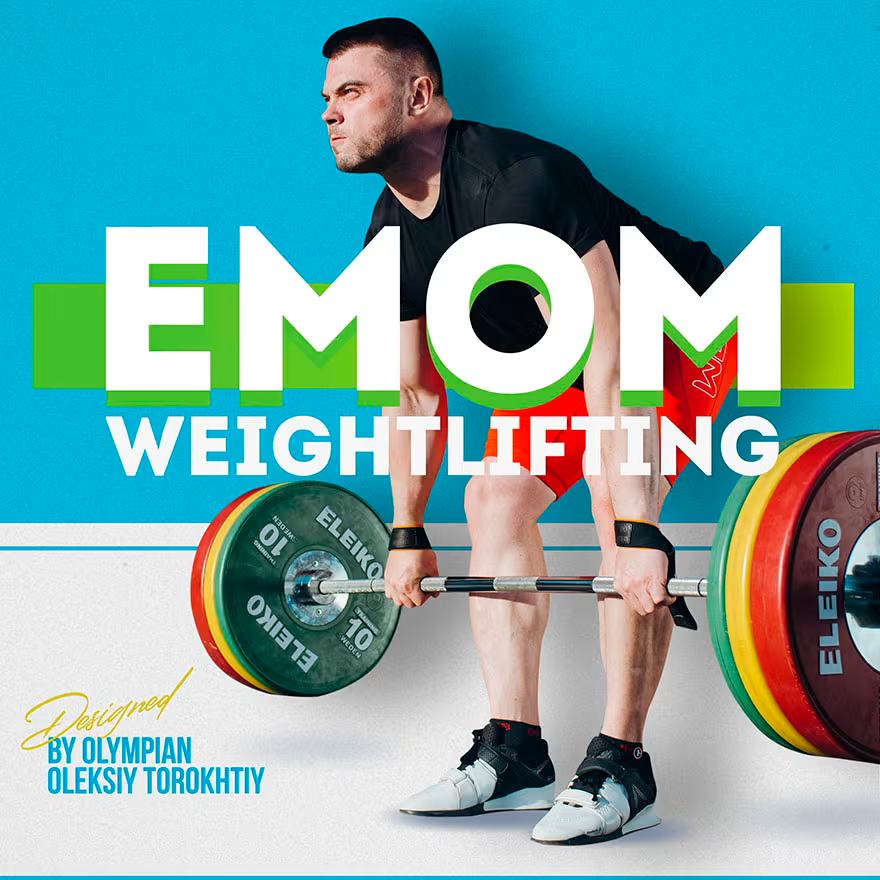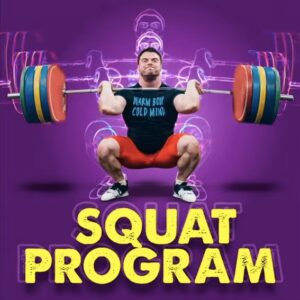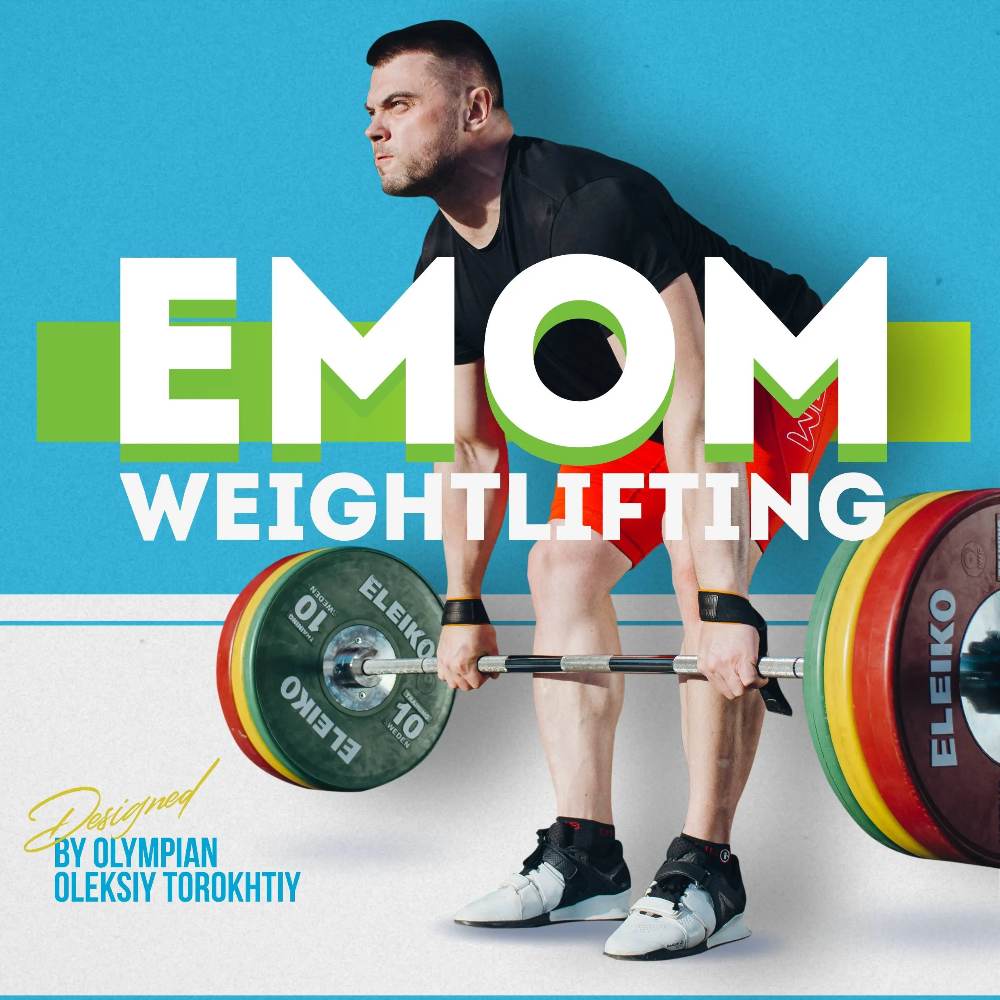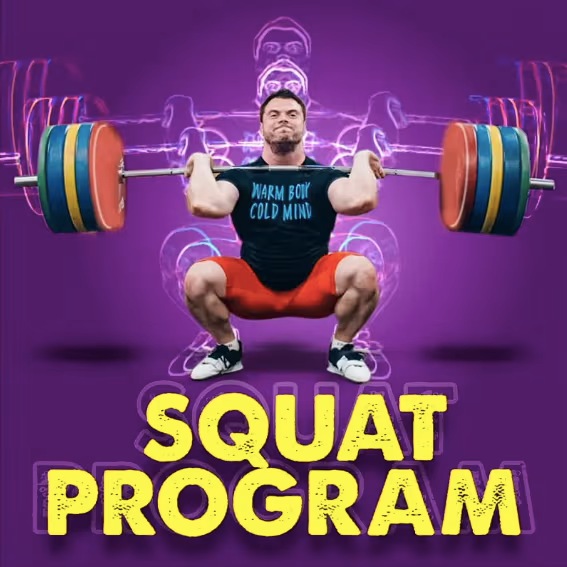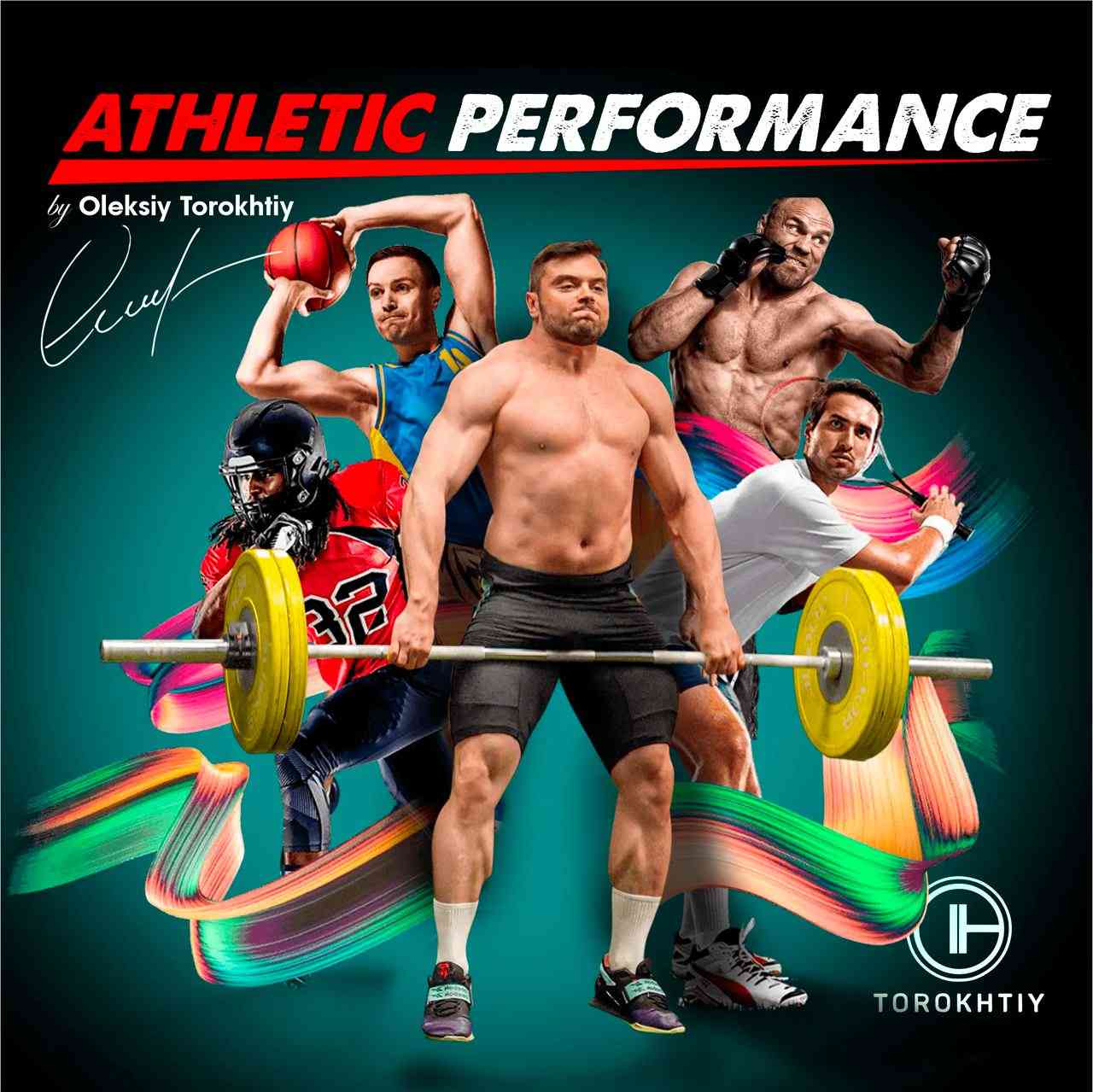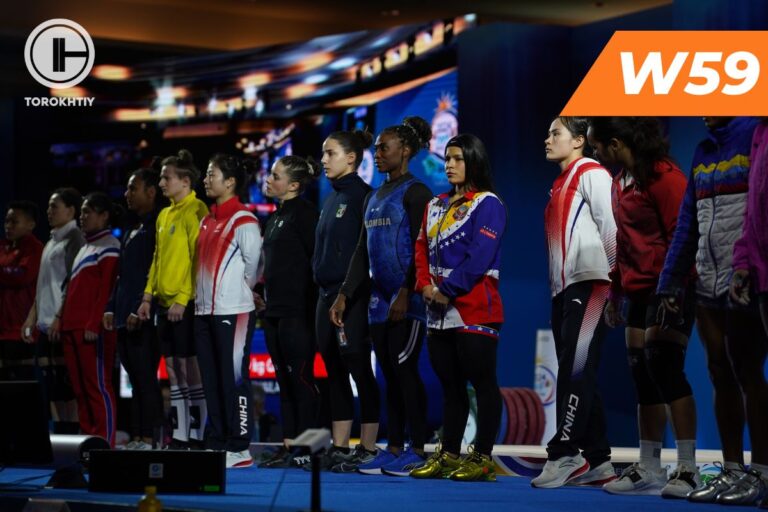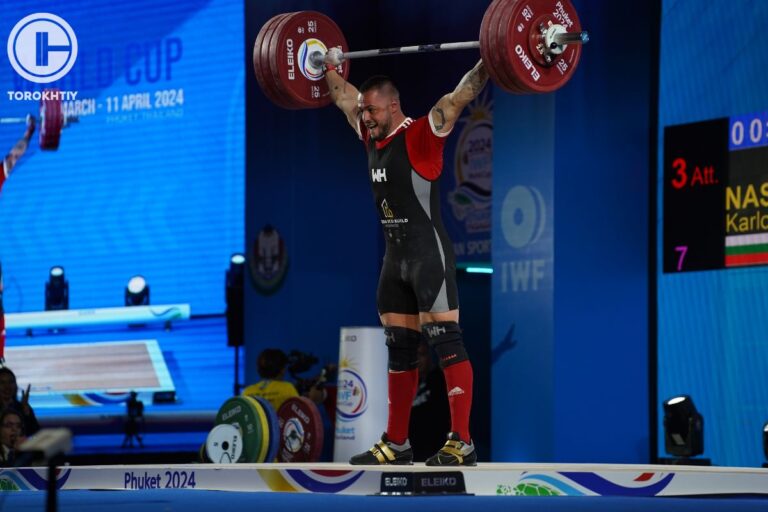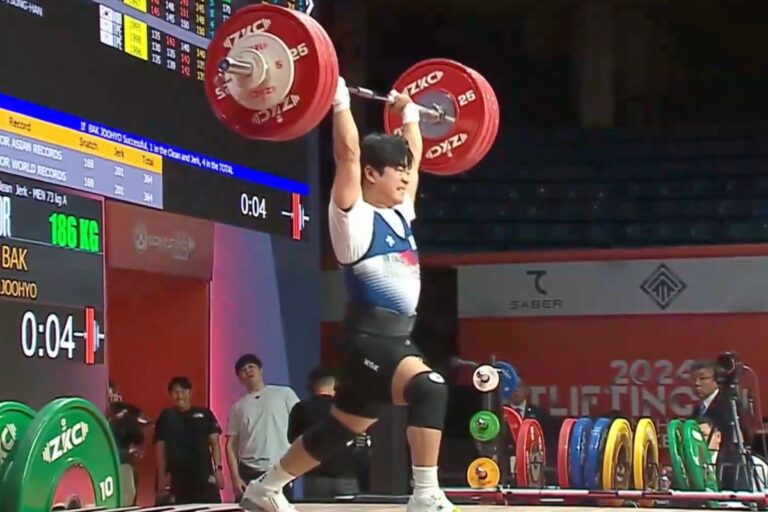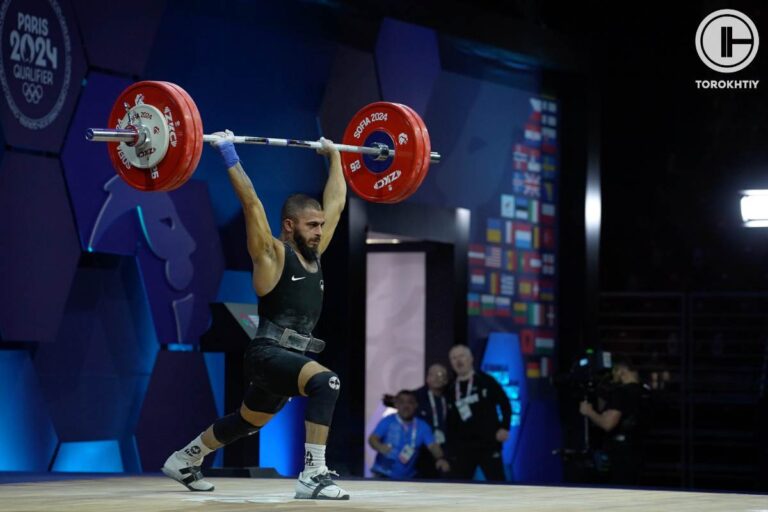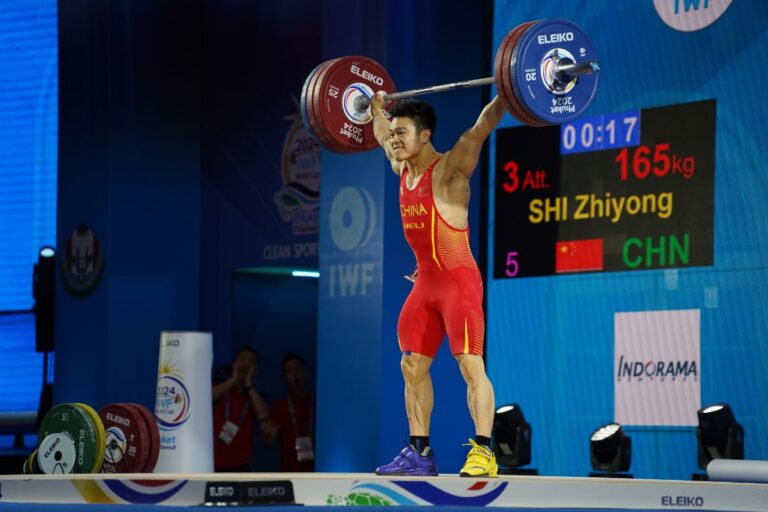Lee Sangyeon Interview – During the 2023 World Championships in Riyadh
Lee Sang, a 28-year-old South Korean lifter, competing in the 67 kg category, has become a sensation in the weightlifting community.
Known for executing squats and pulls that are 3.5 times his body weight, Lee Sang has redefined the limits of what seems possible in the sport.
Today, we’re highlighting Lee Sang, the powerhouse in the world of weightlifting from South Korea. Imagine gravity-defying lifts, strategic medal quests, and training secrets that’ll leave you in awe.
During the World Championships in Riyadh, we had the exclusive opportunity to have a short talk with Lee Sang. Our conversation focused on his performance, especially after winning a bronze medal. Stay tuned – it’s time to unravel the mysteries of Lee Sang’s lifting saga.
The Training Brutality and High Dedication on the Way to Great Victories
Our conversation started with the question:
- Are you satisfied with your performance and bronze medal at the Worlds?
“No, no, I’m absolutely not satisfied. Even though I won a bronze medal, I was more angry with myself than pleased about the medal. I was just so frustrated with myself. So, I was really upset yesterday. Truly, even after coming back, I was constantly angry and upset, and I couldn’t sleep well. I was just so disappointed in myself. It was a very disappointing day for me.”
Let’s remind you of Lee Sang’s performance during the Worlds in Riyadh: in Snatch, he managed to lift his opener at 130 kg. Unfortunately, both his second and third attempts were unsuccessful. The same story was with Clean & Jerk: the first successful attempt at 176 kg secured him bronze in this event. However, both his second and third attempts with 181 kg were unsuccessful. With a total of 306 kg, he ranked fifth in total.
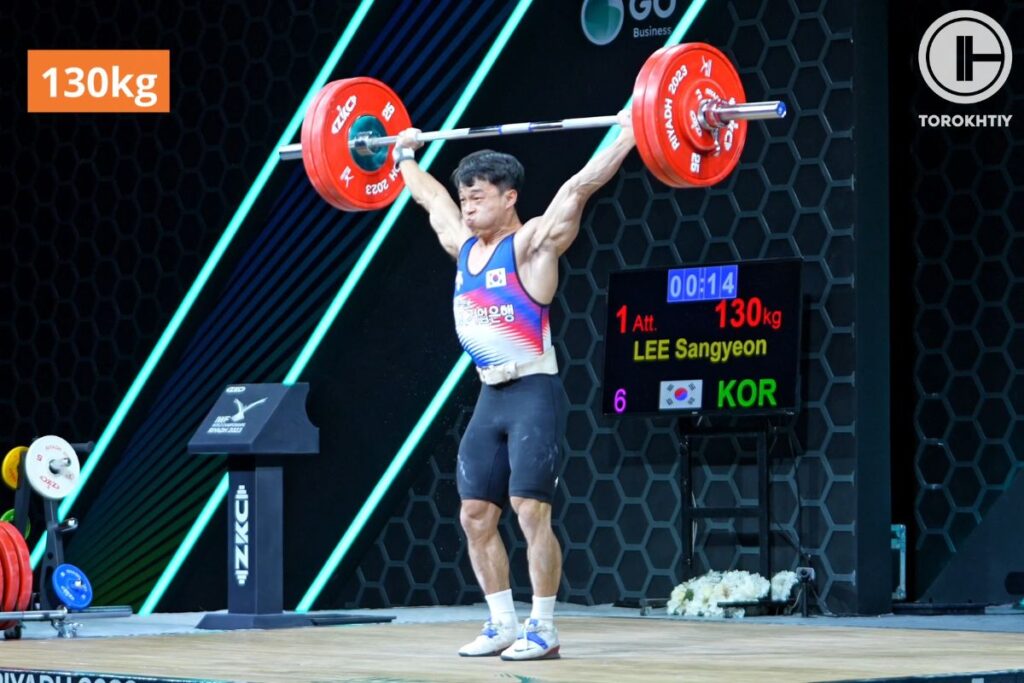
The Winner’s Mindset: Lee’s High Focus on Getting Medals for the Future Gains
In the world of weightlifting, some athletes are competing against themselves trying to beat their records. While Lee Sang intends to grab the medals because for him, medals mean more wins in the future.
During tough competitions, Lee Sang is highly focused on his goals pushing his limits. Curious about his lifting strategy, we asked Lee Sang:
- Are you focusing on winning medals or improving your results at the competitions?
“I think I prioritize winning a medal over improving my record. And if my record does improve, I believe it could certainly lead to more medal-winning opportunities. So, in response to your question, I’d like to say that winning medals is closer to the top of my priority list than improving my records.”
Continuing our conversation, we focus on the mindset and philosophy that moves him forward. As we witnessed his performance, we were curious about how he stayed focused and maintained self-belief despite the obstacles. Lee Sang’s approach is not just about lifting heavy weights, it’s about the solid inner strength that fuels his on the way of pursuing the medals.
- How do you stay focused and hold onto your self-beliefs, especially when faced with tough competition?
“I think you should first know how to think positively rather than negatively. You should have good thoughts, and secondly, no matter who the athlete is, you should never feel intimidated or lesser than them.
Don’t worry about other people. Do your thing and do not care about others. If you care about others, you might get caught up in that and it may not turn out well. So, no matter who is there, just do what you have to do and don’t care about others.
And lastly, the third one is similar to the first one, trust yourself. Believe in yourself and if you just go into the competition believing in yourself, I think your body will follow as you think, so believe in yourself.
“So, the first one is, don’t think negatively, think positively, the second is, don’t worry about others, just do as you have been doing without tension, and the third is, just trust yourself. Believe in yourself and go with that.”
Outer and Inner Sides of Lee Sang: Workout Approach & Immaculate Physical Form
If you notice how Lee Sang performs, you can see his lightning speed during the lifts. Speed is important in Olympic weightlifting. It makes a lift into a powerful motion.
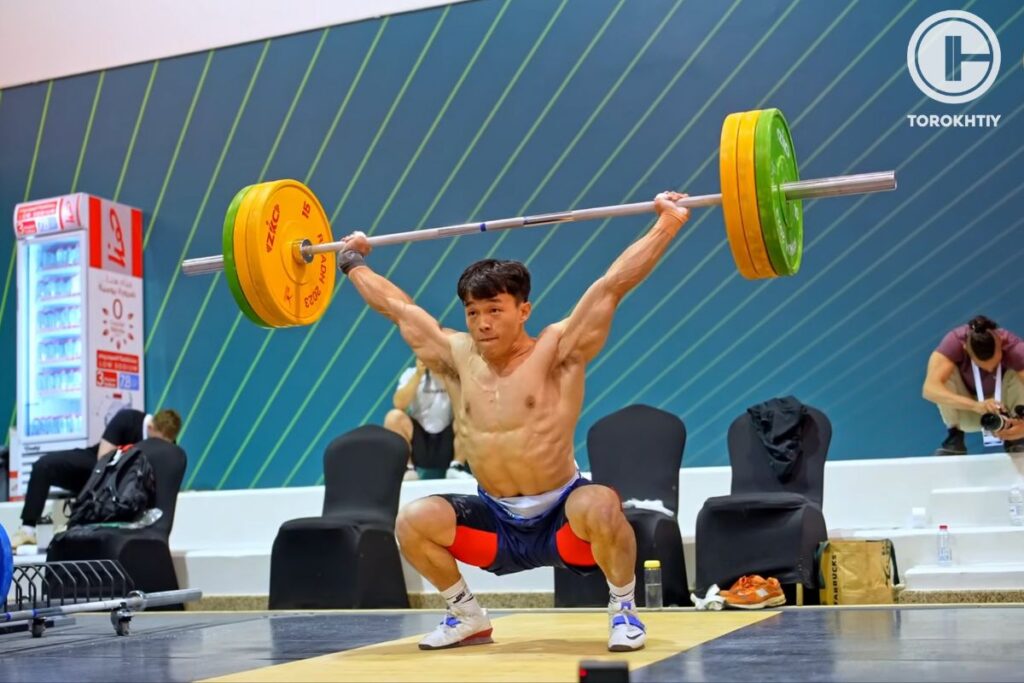
- Your speed during lifts is impressive. How do you work on improving it in your training?
“So, now, I’ve developed my own specific way. When I first started with almost no experience, I didn’t have my own style, so I watched others and tried to mimic them, sticking to a more formal squat position.
But after a while, as I’ve been training for a long time, I’ve started to have my own way and I’ve been working on enhancing it. I didn’t care about what others were doing, but instead focused on how I can improve mine.
And as I’ve continued, it gradually started to fit my body. So, I’ve got to a point where I can train in any environment, with or without equipment. If you give me a mat right now, I can start working out right here, whether I’m in slippers or barefoot, because I’ve mastered my own technique. That’s why I find squats and deadlifts fun these days.”
Lee Sang is commonly known for his impressive back squats and pulls. He does it even without using a belt, performing them with full depth and high bar, showcasing not just power but excellent technique.
- How do you get so strong in your back squats, especially without a belt and with a pause?
“So, as I continued this way, I recently started doing pause squats, where you stay in a squat position for a moment. And as I’ve been doing this, I’ve also mastered the way of this exercise that suits my body.
At first, I tried to get up from a 200 kg squat and it was okay, so I tried 210 kg, and it was manageable. Now, I’m squatting up to 240 kg, and as I continue to squat more.
I want to challenge myself to squat more than 240 kg. I want to make my paused squat and my back squat best weights similar at least once. I have such a desire.”
“I’d like to challenge myself to make my back squat best record and paused squat best record comparable, without much difference.”
Let’s stop our attention on Lee’s physique: he possesses the ideal balance for a weightlifter – not too tall, not too short – just right for handling substantial weights.
Watching Lee Sang’s performance, you can see his muscular and well-developed body. He’s not your typical weightlifter, he looks like a bodybuilder.
- You look muscular, like a bodybuilder. Can you tell us how you build muscles alongside weightlifting?
“People, not just Koreans, but also foreign athletes, look at my physique and ask me if I have any plans to become a bodybuilder. But I’m not training to build my body, I’m a weightlifter.
I train for performance, not to build my body like a bodybuilder.
In a way, because I love squats and deadlifts, and do them quite often, they are full-body workouts. Just by doing these two exercises, I believe anyone can maintain a fairly balanced body. I’m not training to sculpt my figure, but to get better at weightlifting, and as a result, I think my body has naturally improved to some extent.”
“It seems that the body naturally improves as a result of the training. Even if you’re not aiming to build your body, if you’re an average person doing weightlifting, which is a full-body workout, your physique naturally starts to develop. Because you’re utilizing your entire body.”
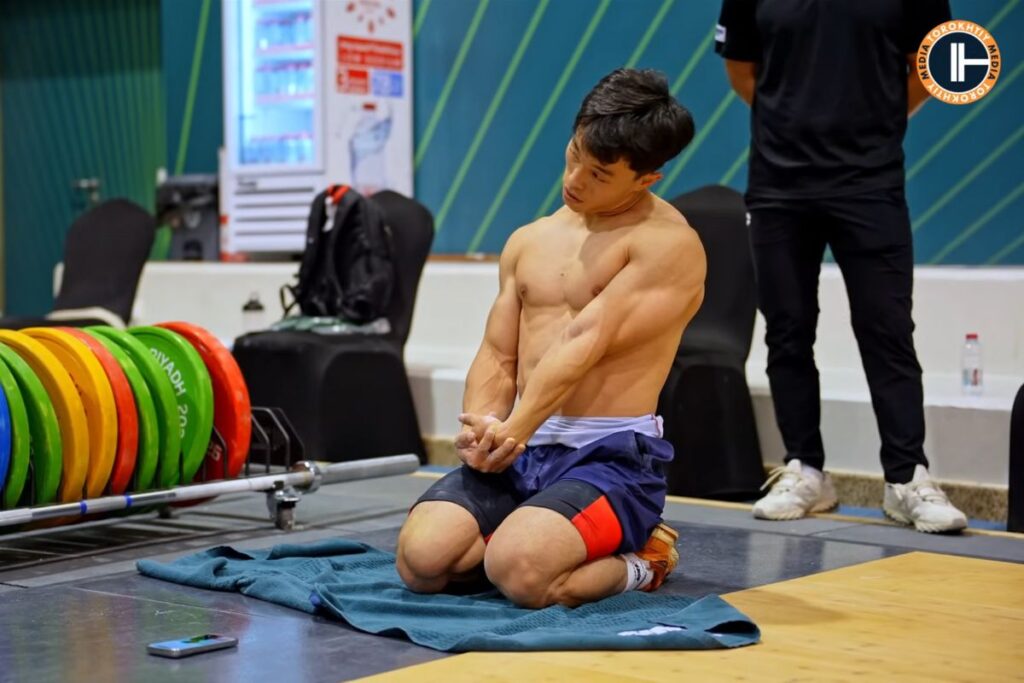
About the Korean Weightlifting Training System
Thinking about the Korean weightlifting system, we wanted to know more about this aspect. So, here’s the next question:
- Can you tell us about the Korean weightlifting system?
“Typically, for Korean athletes, I’m not sure about athletes from other countries, but weightlifting is their main job and they are professionals, so they tend to focus a lot on the results. So, they need to perform well to survive, and if they don’t, they feel disappointed in themselves. Above all, we, in a way, really strive to be number one, to achieve first place.”
We discovered that South Korea has a strong sports history, but we’re curious about the popularity of weightlifting.
- Weightlifting is a favorite sport among Koreans, isn’t it?
“In my view, weightlifting isn’t that famous in Korea yet, but it seems like it’s slowly getting some recognition. Since I’m on social media, I’d love to spread the word about weightlifting a bit more. You know, Functional Fitness is based on weightlifting, and I think weightlifting is starting to gain some attention, thanks to Functional Fitness.
I’m not sure about other countries, but in Korea, weightlifting isn’t that big yet, which is a bit of a bummer. But it would be cool if weightlifting could become a popular sport as more people get to know it, and I’m planning to push myself harder for that. I really want to work my socks off to get the word out there more.”
Now, let’s talk about the training routine of this Korean athlete. We’re curious:
- How often you lift really heavy weights during the workouts?
“First of all, squats and deadlifts, which are the accessory workouts we talked about earlier, are always done with heavy weights as part of my main training. I don’t lift heavy weights for weight training, just enough to stimulate my body, and it seems like I do it pretty much all the time.
I never miss a day, and on days when I have weightlifting training, I plan all my weightlifting training first and then finish lightly moving my body. Just a bit of movement every day, consistently. But when it comes to weight training, I’m not lifting heavy, just moving lightly to loosen up my body.”
Even before the competitions, Lee Sang is in the training hall, loading up the bar and performing heavy snatches, clean and jerks, squats, and pulls. What about his C&J technique: unlike some lifters who stabilize and finish each rep meticulously, Lee Sang just goes right at fixation instead of stabilizing and finishing each rep.
He has a smooth and seamless technique, with no rounded back, vertical movement, full range of motion, speediness, and impeccable timing.
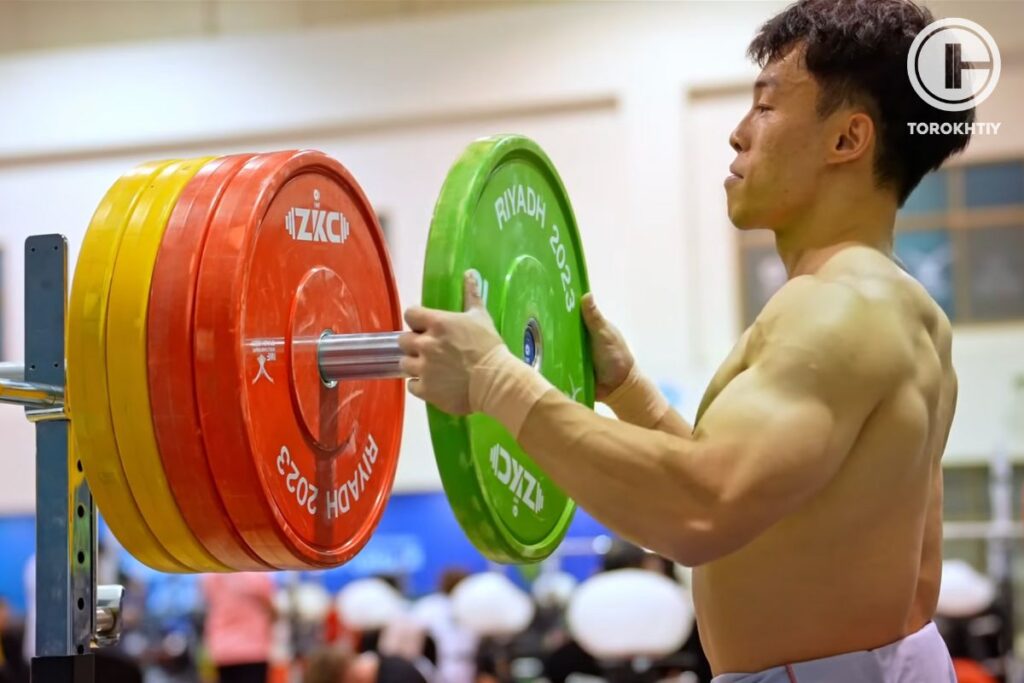
- Is it okay for you to lift heavy in squats and pulls just a few days before an important competition?
“You know, sometimes many athletes tend to go lighter to save their energy and take care of their bodies before a competition. However, because I have my own solid beliefs, I always train heavily, regardless of whether there’s a competition or not, I just like that style.”
“If I don’t do it that way, I actually feel a bit anxious, so I have to push heavy weights to feel satisfied. And because I always train heavy, when it comes to competitions, I don’t feel burdened by the heavy weights.”
“This is because even though I’m losing weight for the competition, if I were to lift lighter weights, I wouldn’t adapt to the lighter weights and worry that they would feel heavier during the competition. So, whether there’s a competition or not, I always try to not worry about the weight and keep pushing, and that’s what I’m striving for. Regardless of whether there’s a competition or not, I always train with heavy weights.
And I’m not sure if it’s just me, but compared to other athletes, I seem to recover quickly, so I don’t really worry about heavy weight training.”
We asked Lee next:
- What advice would Lee Sang give to his past self? What tips would you share to take better care of yourself?
I wish I could tell my past self to take care of my body when I could I had some regrets during my time in Tokyo. I’ve had problems with my shoulder for a while, and I overtrained and ended up having shoulder surgery. I had to rest for about a year.
I wish I had taken care of my body then, but I still don’t. I just can’t. I always train heavily and with high intensity, so my coaches, managers, senior athletes, and everyone else tell me to stop and take care of myself. But I don’t really do that.”
“If I could go back in time and give myself some advice, I would tell myself to take care of my body a bit more. But I probably wouldn’t have listened. No matter what anyone says, I love doing what I do, and as long as my body can keep up and endure, I don’t want to take it easy.”
“I always want to train hard and do more of the training that others can’t do. Without any limits, I want to do it every day, always with high intensity.”
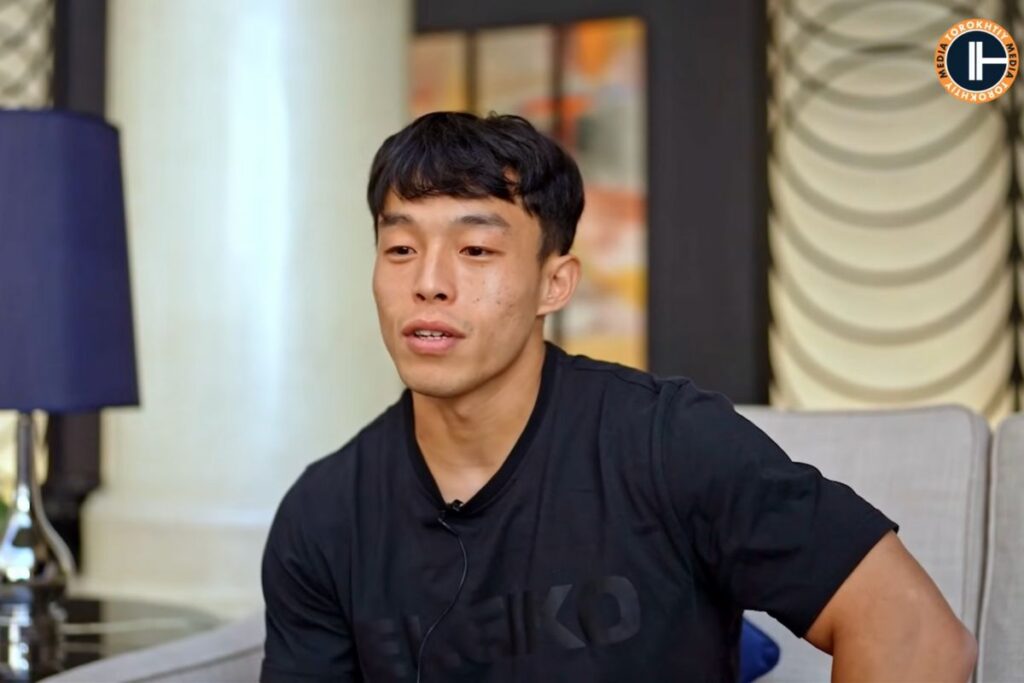
Conclusion
Subscribe for more exciting insights into the world of weightlifting on our Media channels – website blog, Instagram, and YouTube, and share your thoughts below. Stay inspired by world-level athletes’ accomplishments and embrace the journey of becoming a stronger version of yourself.
🔻Find Your Best Training: Take Our Quiz!
Are you ready to learn and grow? Take our simple quiz to discover the right training program for you. Let us help you succeed — click below to start the quiz!
Author: Tanya Shaiko
News Editor, Olympic Lifting Enthusiast
Best Results: Snatch – 61 kg,
C&J – 78 kg
I’m Tanya, and I just can’t do without fitness. About six years ago, I got into Olympic weightlifting and instantly fell in love with it. Weightlifting is like no other sport – it’s just you versus the bar. Driven by my unwavering passion for an active lifestyle, I’ve been eager to share my personal journey and sports enthusiasm with others. As a journalist and photographer, my interests come full circle, adding an extra dimension to the news column that I curate. This way, I keep my readers updated with the latest happenings in the sports world.

